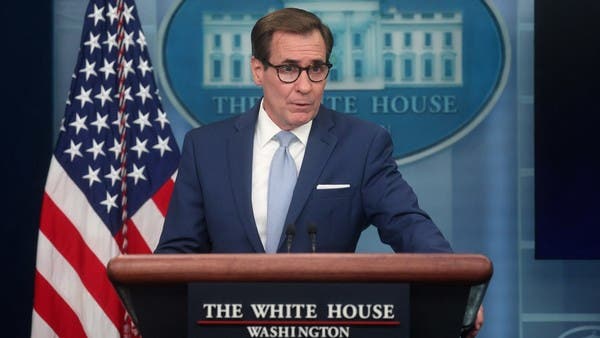A White House source emphasised that Washington’s one China policy, which aims to maintain free access between the Indian and Pacific oceans, is completely consistent with the transit of two US warships through international waters in the Taiwan Strait on Sunday.
John Kirby, a spokesperson for the National Security Council, described the passage of US warships through the Taiwan Strait as “the crossing” after House Speaker Nancy Pelosi’s provocative visit to Taiwan earlier this month.
Reuters claims that it had been planned for a very long time.
He continued by saying that the ship’s passage is fully compatible with our one-China policy and with our goal of continuing to strive toward unrestricted and unhindered travel throughout the Indo-Pacific.
These statements come after the first of their kind since China launched exceptional military exercises close to the island, when two US warships crossed the Taiwan Strait earlier on Sunday.
The United States’ commitment to a free and open Indo-Pacific region is demonstrated by the passage of the two ships, the Navy said in a statement, according to AFP.
The USS Antietam and USS Chancellorsville, two Ticonderoga-class guided-missile ships, also completed a routine transit in waters where freedom of navigation and overflight are practised in accordance with international standards, according to the US Seventh Fleet.
He added that the two ships crossed the Taiwan Strait outside of any coastal nation’s territorial waters and that the US Navy has the authority to conduct operations in accordance with international law.
On the other hand, the Chinese army acknowledged in a brief statement on Sunday that its personnel are keeping an eye on US Navy ships as they sail through the Taiwan Strait.
He reportedly said that his men are prepared to respond to any provocations in the area, according to Reuters.
A visit by US House Speaker Nancy Pelosi to Taipei in early August sparked a tense response from Beijing, which performed its largest military exercises close to the island, and tensions between Washington and Beijing reached a height in the Taiwan Strait.
Washington announced on August 12 that it was determined to strengthen its business ties with Taiwan in response to Beijing’s aggressive moves and that it recognised Taiwan’s right to unrestricted travel by air and sea via the Taiwan Strait.
Kurt Campbell, the White House’s Asia-Pacific coordinator and advisor to President Joe Biden, stated that day that Beijing had used Pelosi’s visit to start a fierce pressure campaign against Taiwan in an effort to alter the status quo and jeopardise peace and stability in the Taiwan Strait and the wider region.
Washington, Taiwan’s top arms exporter, concurrently continues to support the island, which broke off official diplomatic ties with Taipei in favour of Beijing in 1979.
It is important to note that Beijing threatens to retake Taiwan, even if it means using force, and sees it as an inalienable part of its territory.
Since the defeated Republic of China government retreated to Taiwan in 1949 after losing a civil war with the communists who founded the Peoples Republic of China, the Taiwan Strait has been a constant source of military worry.
America: It is consistent with our policy for two US ships to transit the Taiwan Strait.

